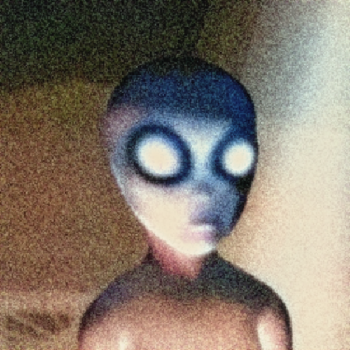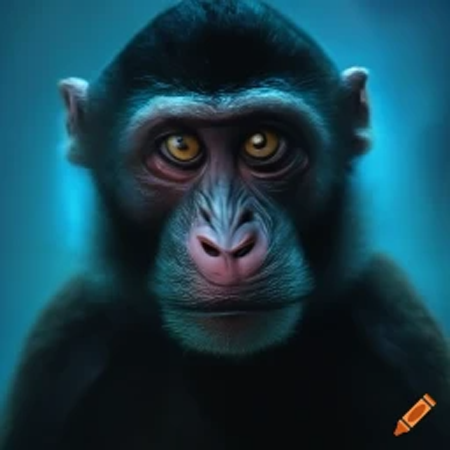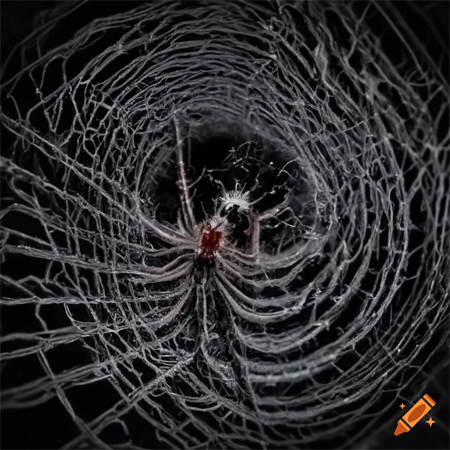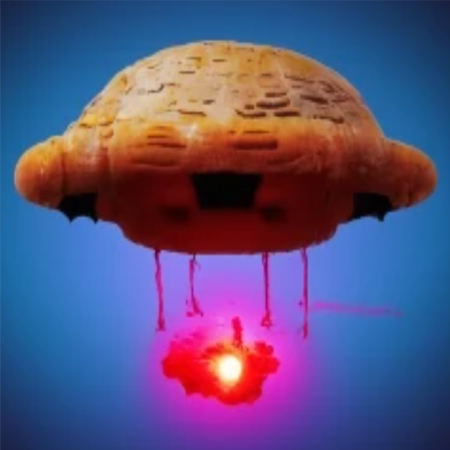In a disturbing turn of events, reports have emerged of scientists conducting experiments that involve subjecting monkeys to prolonged sessions of popular apocalyptic-themed movies. The controversial research, aimed at studying the cognitive and emotional responses of primates to cinematic stimuli, has ignited a fierce debate about the ethical treatment of animals in the name of scientific inquiry. The experiments, reportedly taking place in undisclosed research facilities, involve exposing captive monkeys to a variety of apocalyptic films known for their intense and distressing content. Researchers are monitoring the primates' reactions, including changes in behavior, stress levels, and emotional well-being, to better understand how such stimuli might impact non-human animals. Animal rights activists and ethical researchers alike have raised concerns about the potential harm inflicted upon the monkeys involved in these experiments. The use of animals in scientific research is already a contentious issue, and subjecting them to prolonged exposure to distressing content adds another layer of ethical complexity. Critics argue that such experiments lack clear justification and risk causing unnecessary stress and suffering to the animals. They emphasize the importance of prioritizing the welfare of sentient beings over scientific curiosity, urging researchers to explore alternative, humane methods for studying animal cognition and behavior. Proponents of the research claim that understanding how animals respond to specific stimuli, including cinematic content, can provide valuable insights into their cognitive abilities and emotional capacities. They contend that the information gathered from these experiments could have implications for fields such as psychology, neuroscience, and animal welfare. However, the ethical considerations surrounding the well-being of animals remain paramount. Striking a balance between scientific curiosity and ethical responsibility is essential to ensure that research practices respect the dignity and welfare of all living beings involved. As discussions about the morality of such experiments continue, the scientific community is facing increased scrutiny to uphold stringent ethical standards in animal research. The controversy surrounding the monkeys subjected to apocalyptic movie marathons underscores the ongoing need for transparent and ethical practices in the pursuit of scientific knowledge.
Ultra Supernatural
+ aliens
The Place for Strange News and Odd Entertainment
observer.com
According to Kaku, today's A.I. still operates within what he calls the "second stage of computer evolution,"...
Ultra Supernatural
Extraordinary Claims: Woman Claims to Hear Voices in Spider's Web
In a small town nestled on the outskirts of curiosity and mystery, an eccentric woman has made a peculiar declaration, insisting that she can hear voices emanating from an unlikely source - a spider's web. The extraordinary claim has raised eyebrows and sparked both skepticism and fascination among the local community. Meet Clara Johnson, a 45-year-old resident known for her love of nature and quirky observations. Clara insists that the delicate strands of a spider's web possess an otherworldly quality, transmitting voices that only she can hear. According to her, these ethereal whispers are more than mere vibrations - they are a form of communication from an unknown dimension. Local residents first became aware of Clara's extraordinary ability when she began sharing her experiences with close friends and family. News of her claims quickly spread through the community, leaving some intrigued and others dismissing her assertions as the result of an overactive imagination. Clara describes the voices as soft, melodic whispers that convey messages of wisdom, guidance, and sometimes cryptic predictions about the future. She claims to have developed a unique bond with the arachnid realm, as if the spiders themselves are conduits for these mysterious voices. Local scientists and experts have approached Clara's claims with skepticism, attributing the phenomenon to a possible combination of natural sounds, wind vibrations, and the human mind's inclination to seek patterns in randomness. Despite the lack of scientific validation, Clara remains resolute in her belief, encouraging others to open their minds to the possibility of unconventional forms of communication. The town, now divided between those who find Clara's assertions intriguing and those who view them as fanciful tales, has become a focal point for discussions about the mysteries of nature and the limits of human perception. While Clara's claims may stretch the boundaries of conventional understanding, her story serves as a reminder to approach extraordinary accounts with an open mind and a healthy dose of curiosity. In a world where the unknown often challenges our preconceptions, perhaps there is more to discover in the delicate intricacies of a spider's web than meets the eye - or, in Clara's case, the ear.
Ultra Supernatural
Local Pranksters Convince News Station of Absurd Carrot UFO Abduction
In a bizarre turn of events, a group of mischievous individuals recently fooled a local news station into reporting an outlandish story about a UFO made entirely of bloody carrots allegedly kidnapping school teachers. The incident left both residents and authorities scratching their heads in disbelief. The elaborate hoax began when the group claimed to have witnessed a peculiar event involving a flying saucer composed entirely of carrots stained in what they described as "bloody" hues. According to their account, the carrot UFO allegedly targeted school teachers, abducting them in broad daylight. The fantastical tale quickly caught the attention of the local news, which ran the story without verifying its authenticity. Unsurprisingly, the news report sparked a wave of confusion and concern among the community members, who were left questioning the credibility of the news outlet. As word spread, social media platforms buzzed with a mix of skepticism and amusement, with many users expressing disbelief at the absurdity of the supposed carrot UFO incident. Local authorities, upon investigating the matter, quickly determined that there was no evidence to support the wild claims made by the group. The so-called witnesses were later identified as pranksters with a penchant for elaborate and imaginative hoaxes. While the incident may have caused momentary panic and confusion, it also served as a reminder of the importance of responsible journalism and fact-checking in the age of instant news dissemination. The news station involved issued a public apology for not thoroughly vetting the information before broadcasting it, acknowledging the potential harm caused by spreading baseless stories. In the aftermath of the carrot UFO debacle, the community came together to laugh off the absurdity of the situation. Memes and jokes circulated on social media, turning the incident into a lighthearted anecdote that showcased the power of critical thinking and the need for responsible reporting. As the community moves forward, it's essential to remain vigilant against the spread of misinformation and to approach extraordinary claims with a healthy dose of skepticism. While this incident may have been a foolish prank, it serves as a reminder that in the realm of UFO sightings and strange occurrences, a level-headed approach is crucial to separate fact from fiction.





